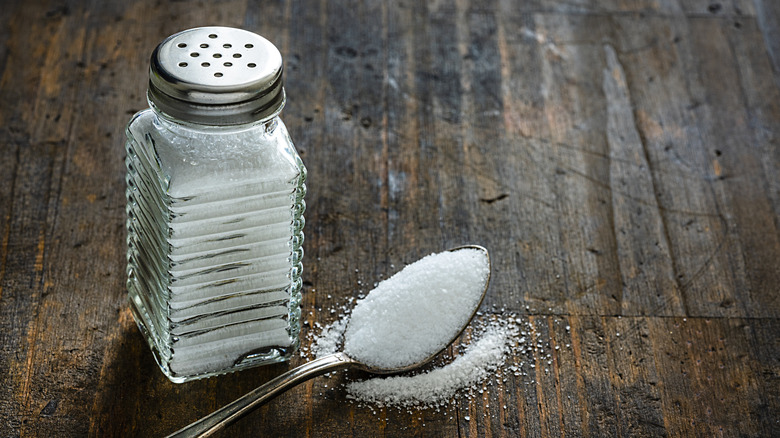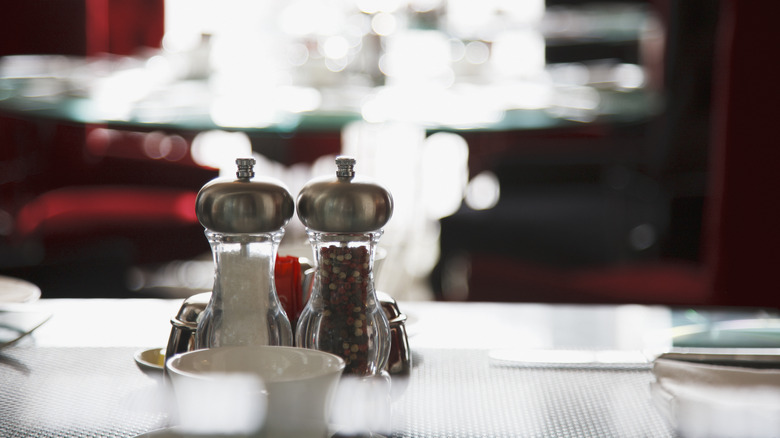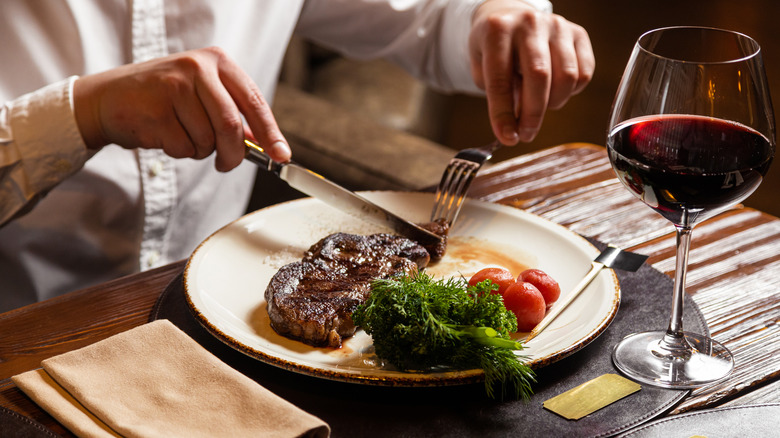Your Salt Passing Etiquette Has Been Wrong This Whole Time
When it comes to dinner etiquette, there are many rules that are meant to be followed. Table manners in Europe date as far back as the 11th century, with people around the globe abiding by their own rules and passing them down from generation to generation. Over time, these tips and tricks on how to behave when eating have been adjusted and expanded, so we can best present ourselves when dining, be it a dinner party with good friends or an important business meeting with clients.
While many fine dining rules are obvious, such as waiting to eat until everyone is served, keeping your elbows off the table, and not using your phone while eating, there is one you are probably unaware of and may have been breaking. It has to do with passing the salt, a common interaction between diners at the dinner table. It turns out that when somebody asks for the salt, you should also be passing them the pepper at the same time. This baffling dinner etiquette process is one that many have not heard about, but it is an important aspect of fine dining.
A short history of salt and pepper, and why they go together
Salt and pepper have always been part of dining traditions, but it wasn't until the 17th century that the two were paired together on the dining table. Before that, people would use them separately, something we have reverted back to today. So how did salt and pepper become a thing? We have the French to thank for bringing these two spices together.
King Louis XIV was known to enjoy his food barely seasoned and, at the suggestion of his personal chef, the monarch began making sure salt and pepper were always available on the table when dining. This soon caught on, and everyone began pairing salt with pepper. Over the years, this became part of dining etiquette, and whenever someone asked for salt or pepper, both would be passed at the same time. Unfortunately, this rule is no longer adhered to in modern dining — but is one that should be brought back as the two go together so darn well.
Other dining rules that need to be adhered to
Passing the salt and pepper together isn't the only etiquette rule that has fallen by the wayside over the years. There are many fine dining expectations that are often neglected when people are eating together, but there are definitely a few that are worth bringing back. Some of them may still have a place in polite society, such as passing dishes clockwise, turning off your phone to focus on your food and company, and placing utensils on your plate when you are finished. However, there are others that are lesser known yet still deserve to be followed.
One of the most important that also involves salt and pepper is tasting your food before you season it. The reasoning is that you should first taste the food as it shows respect to the chef. Once you've had a few bites, you can lightly season if you prefer a little more oomph. Another is sipping from the same spot on your glass so as not to leave marks all around the lip. And never clink glasses at the table since there is a chance you might break your glass, and the less noise when dining in a formal setting, the better.



